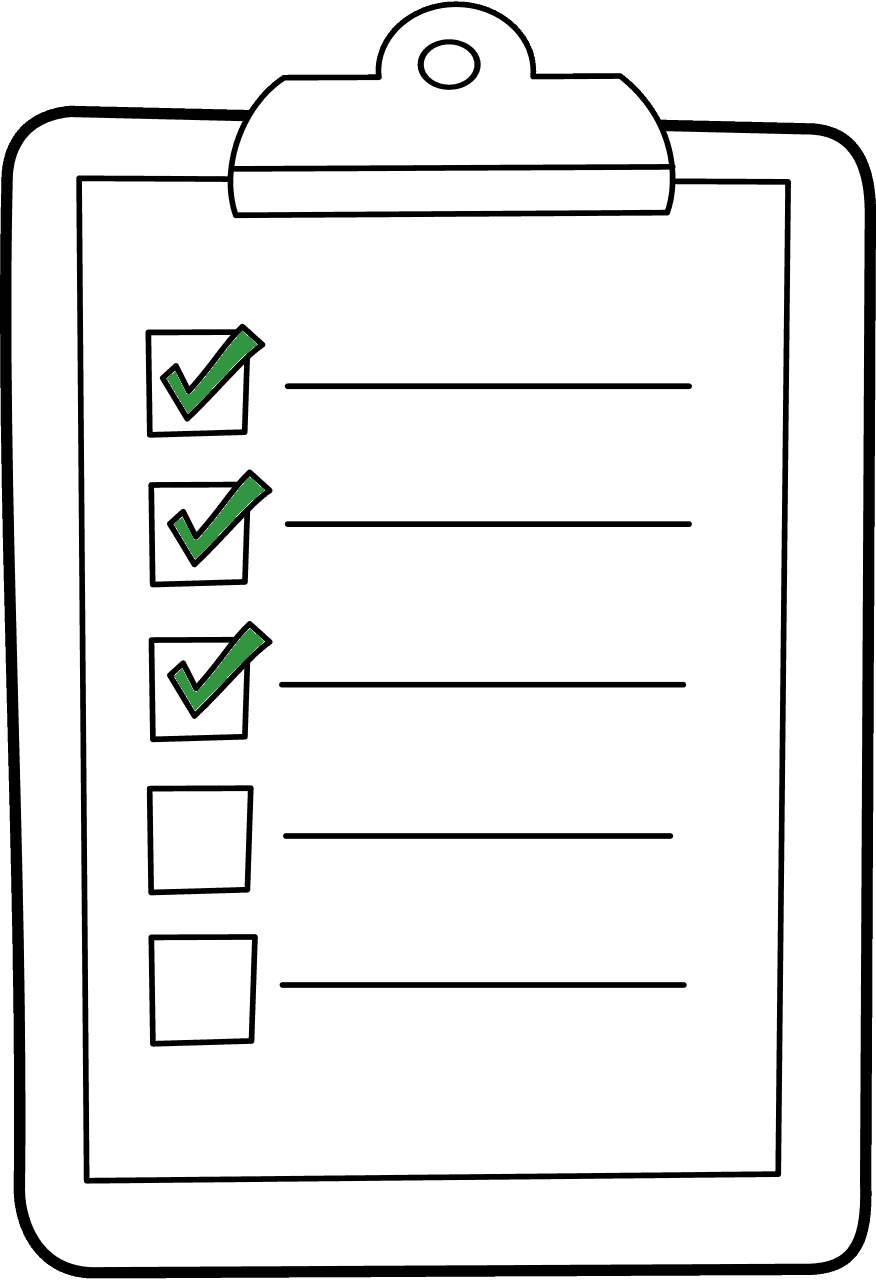In this lesson, I’m going to recap and connect all of the topics discussed in the last six lessons to help you in finding your blog niche. Keep in mind that even if you’re still a little bit confused and overwhelmed, you know so much more now than you did when you started. Even though it may not feel that way, you are set up for success better than at least 90%, if not 99%, of people that go into internet marketing.
Finding Your Blog Niche: Things to Remember
Niche discovery takes time. This may be difficult and overwhelming, but deciding on a niche takes time. It’s crucial enough to the success of your business that you actually want to take the time to really think about it because it’s going to determine whether you succeed or fail in the long run.

Even the worst-case scenario is not that bad. There’s a point where you just have to jump in. Even if you end up picking a bad niche, you’re going to learn from the experience and move toward success. You’ll get the knowledge and experience that is invaluable when you find the niche you end up making a living in.
Give it a shot! Plenty of people have succeeded in this industry before you without remotely this much guidance. Many of them just picked a niche, rolled with the punches, and made it work. So, at this point, even if you don’t feel totally confident in your choice, just give it a shot!
Recap: The Core Concepts of Picking a Niche
The best niche is one where you provide the most value. Providing more value means you’re more likely to profit from that niche and succeed.
Don’t pick an entire industry as your niche, and don’t paint yourself into a corner by going too narrow. Don’t take on niches that generate thousands of visitors daily, and don’t run out of content to write.
Choose a niche with a buying audience. Make sure your audience is willing to make purchases to solve their pain points or answer their questions.
Competition is your friend! It’s not something to be scared of but a sign of your niche’s profitability.

Choose a niche either with digital products that have high commission percentages or with physical products that are high value (>$50). The higher your commissions, the fewer conversions you need, and the less traffic you need, the more likely you are to succeed.
There are plenty of monetization opportunities if you let your creative juices flow. Giving away free trials, generating leads, and creating your own books and courses are all legitimate ways to make money.
As with all rules, there are exceptions for each of these points, but these are good general guidelines.
When to Let That Niche Go
Two justifiable reasons for letting a niche go are:
- Feeling burned out and
- feeling boxed in.
People select niches they’ve worked in for years because, as mentioned in an earlier lesson, the topic you have the most expertise in is where you can offer the most value. However, sometimes even the best motivation to help others won’t be enough.
People burn out, especially those who have been forced to live and breathe a niche for too long; they simply can’t work in it anymore. Other times, the content well runs dry and people run out of things to discuss. You’d feel trapped and boxed in, too. When you reach this point, it’s over. There’s no coming back from those feelings.

If you find yourself in either situation, don’t beat yourself up. Most Internet Marketers, even the successful ones, didn’t get their niche right the first time.
Fail early, fail fast, fail often. The more you fail, the more you learn. Our successes are made of the failures we’ve had along the way. We refine, we improve, and we get better. As long as you keep at it, you’re going to be successful.
Progress is the goal, not perfection. You may not have the perfect niche, but it’s better to launch into something now and spend months making it profitable than spending those months tossing and turning, trying to find the perfect niche.
When Is It Time to Press Forward?
Don’t linger on thinking about your niche for more than 24 to 48 hours. Any longer than that, and it’s very easy to get paralyzed and stuck in the selection phase. Review everything you’ve learned about niche selection and then make a decision.
Momentum is one of the most crucial things to becoming a successful Internet Marketer and owning a profitable internet business. The longer you end up stuck in one place, the longer it takes you to succeed, and the more likely you are to quit.
Even if everything doesn’t turn out perfectly, you’re learning, you’re becoming better, and you’re taking strides towards success. Even if you are making mistakes, you are making progress whether you realize it or not.
Revisiting the Brainstorm List
Do you still have your brainstorming list? You have two options: either choose the best option from the list or go through the niche selection process again with the knowledge gained from the last six lessons. You’ll probably come up with fewer ideas now that you know more, but they’ll be much better.

If you’re still stuck, Google it. No kidding. Lots of people are talking about different niche ideas online. Go through some of them using everything you’ve learned in this lesson and see if there’s anything worth pursuing.
Whatever path you go down, use your best judgment and make a decision within 24 to 48 hours of beginning the selection process. Don’t get sucked into a black hole. Make a choice, commit to it, and, at the end of the day, keep reminding yourself that the worst-case scenario is not that bad.
Wrapping It Up
Niche selection is an essential skill to master if you want long-term success in this industry with multiple streams of income. Everything discussed in the past six lessons and the in-depth knowledge you’ve gained should help you in finding your blog niche at this point.
Lessons 6–12 Key Takeaways
- Don’t go into a niche just because there’s good money in it; go into a niche where you can provide the most value.
- There’s always a chance that you’ll pick a bad niche the first time, but that’s not the end of your Internet Marketing journey. Pick a new and better niche and press forward.
- The first three questions to ask yourself when brainstorming are:
- What jobs and/or expertise have you developed?
- What problems have you faced in the past?
- What leisure activities do you enjoy?
- The broader your niche is, the longer it will take to get traction, and selecting too-narrow niches are just as bad as choosing too-broad niches.
- As you narrow down your niche, also ask yourself: Will your audience identify themselves by what they search on Google?
- The broader the content you’re covering, the larger the audience, and the more earning potential that site is going to have. If you absolutely want to establish a broad authority site, the right way to do it is one niche at a time.
- How to know if your niche size is just right: Come up with at least five subtopics that you can write 10 articles about each, or 10 subtopics that you can write five articles about each.
- The more ideas you eliminate at the start of the niche selection process, the more likely it is that the idea you end up pursuing is something that’s really viable.
- A buying audience is an audience that will likely make a purchase to solve their pain points or answer their questions.
- Traffic without a buying audience is unlikely to translate into an income. You need to create content that is based on search terms that people use when trying to solve a pain point or answer a question that will ultimately result in a purchase.
- Good examples of buying audiences include those who are searching for information about private problems, emotionally-charged problems, and product specifications.
- High-priced product niches are good for monetization as this type of niche provides a lot of opportunities for monetization along the buying process.
- Competition is not something to be afraid of; it’s a good sign that your chosen niche is profitable. The exception to this general rule is when the same few heavy-hitters in your niche dominate every search term you look up; then you’re probably in the wrong niche.
- To survive and stand out in a competitive niche, you need to add more value, add value in a unique way, or add value through a different medium.
- The most competitive (and most profitable) industries are:
- Health/Wellness/Beauty
- Make Money/Investing/Business Opportunities
- Relationships/Dating
- The cheaper the products in your industry, the more you have to sell. That means you need more traffic and the more traffic you need, the less likely that it is to happen. Conversely, the higher the commission, the fewer you have to sell.
- Having to get fewer conversions sets you up for success so much better than needing a ton of conversions.
- Don’t try to sell a high number of low-percentage, cheap products; instead, try to sell digital products that have higher percentage commissions, or sell physical products that are $50 or more that have lower percentage commissions.
- A buying audience, in a niche that isn’t too broad or too narrow, and a niche that you can add value to, equals monetization opportunities.
- It’s better to launch into something right now and spend months making it profitable than spending those months tossing and turning trying to find the perfect niche.
- The two most justifiable reasons for getting out of a niche are feeling burned out or boxed in.
Recommended Readings

How to Find Your Blog Niche
"What can I start a blog about?" you wonder. Well, wonder no more. This post will guide you on how to find your blog niche in no time.